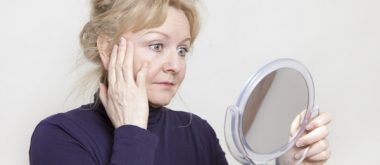The aging process could precipitate deficiencies of important hormones classified as androgens. Luckily, there are a number of ways to regulate hormone levels.
What are Androgens?
Androgens are sexual and reproductive hormones like testosterone and androstenedione. Though these chemicals are vital male hormones, they are also found inside a woman’s body and play a vital role in the female sexual development and reproductive processes.
In men, testosterone and other androgen hormones execute many critical functions that include initiating puberty, building bones and creating muscles, spurning the growth of reproductive organs, preventing the accumulation of body fat and stimulating libido (sex drive).
Although women’s bodies do not contain large quantities of androgens, these substances are converted into estrogen, the chief female sexual and reproductive hormone. In women, estrogen and related hormones perform functions akin to those that testosterone performs in men. Estrogen is also crucial to reproductive health and the conception process.
Aging and Androgens
Arguably, among the most common causes of androgen deficiency in men is age. As men grow older, their bodies gradually produce and secrete decreasing amounts of these hormones. Such systemic decline often accelerates once a man reaches his forties. However, the decline can begin as early as his twenties.
Occasionally, a decrease in androgen production may also be attributed to various illnesses such as cancer, other hormonal imbalances and diabetes. Also, it could be caused by certain medications and lifestyle choices like a poor diet and indulging in potentially dangerous vices like excessive drinking of illicit substance use.
Like in men, age-related androgen decline occurs in women as well. Other conditions that might precipitate the decline in women include damage to or removal of specific reproductive organs (such as the ovaries), various hormonal ailments, excessive weight loss or exercise and undergoing estrogen therapy for deficiencies of the hormone.
Symptoms of Low Androgen Concentrations in Men

Symptoms of Low Androgen Concentrations in Women
Women may experience many of the same symptoms experienced by their male counterparts. However, women might also witness other untoward manifestations such as insomnia, irregular menstrual periods, vaginal discomfort that could make intercourse painful, as well as fertility issues.
Potential Treatment Options
The first step toward remedying an androgen deficiency is identifying the specific underlying causes of the ailment. Should the problem be directly attributable to a medical issue, initiating an appropriate course of therapy might ultimately regulate the accompanying hormonal decline.
Hormone Replacement Therapy
In instances where the deficiency is related to the aging process, several therapeutic protocols might prove effective. Some men experiencing diminished testosterone production might choose to undergo hormone replacement therapy (HRT). Though the procedure has regulated systemic hormonal concentrations in some men or provided relief from associated symptoms in others, HRT can be costly, and it comes with the increased risk for developing potentially serious side effects like blood clots and strokes.
Natural Options
Both men and women, however, might be able to stabilize diminishing androgen concentrations by engaging in certain natural practices that might include the following:
- Consuming a Healthy Diet – Individuals with androgen deficiencies are encouraged to eat natural foods like produce, fiber, fish and lean meats. Processed, sugary, canned and frozen products and items with excessive fat and salt contents should be avoided or greatly limited. These products are known to precipitate hormonal imbalances.
- Exercising – Physical activity is believed to provide a natural boost in testosterone production. Additionally, exercise could counteract symptoms of low testosterone such as weight gain and fat accumulation.
- Augmenting Diet With Androgen-Boosting Substances – Certain natural dietary supplements contain nutrients known to naturally stimulate bodily production of androgen hormones.
- Limiting Stress Exposure – Chronic stress causes the body to release so-called stress hormones. Continual systemic production and release of these chemicals (two of the more common examples are adrenaline and cortisol) can decrease the body’s production of androgens and render existing internal amounts of the substances ineffective.





